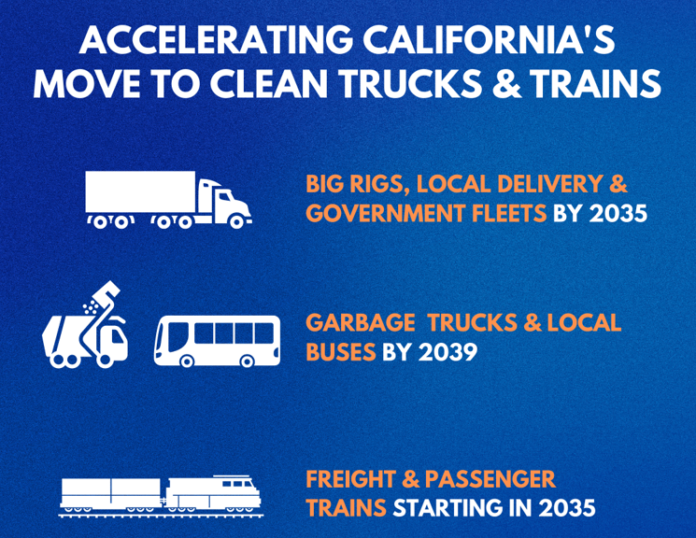California Construction News staff writer
California is the first jurisdiction in the world to end sales of traditional combustion trucks by 2036, in an effort to reach zero emission medium heavy-duty trucks on the roads in California by 2045. California also became the first state in the nation to implement emissions standards for trains.
The California Air Resources Board (CARB) passed the Advanced Clean Fleets, the new rule puts the state on a path toward to fully transitioning the medium and heavy-duty trucks that travel California roads to zero-emissions technology by 2045, providing major fleet operators – including state, local and federal government fleets – with different options to begin transitioning next year:
- Drayage trucks (i.e. big rigs), local delivery and government fleets must transition by 2035;
- Garbage trucks and local buses must be zero-emission by 2039;
- And all other vehicles covered by the regulation must be zero-emission by 2042.
“The future happens here first, and California is once again showing the world what real climate action looks like. Last year, our state approved one of the world’s first regulations requiring all new car sales to be zero emissions,” said Governor Gavin Newsom. “Now, with these actions requiring all new heavy-duty truck sales to be zero emission and tackling train pollution in our state, we’re one step closer to achieving healthier neighborhoods and cleaner air for all Californians.”
While trucks represent only 6% of California vehicles, they represent a quarter of the state’s on-road greenhouse gas emissions and over a third of the state’s emissions of the harmful air pollutant NOx. The new rule is expected to generate $26.6 billion in health savings, and fleet owners will save an estimated $48 billion from the transition to cleaner vehicles.














